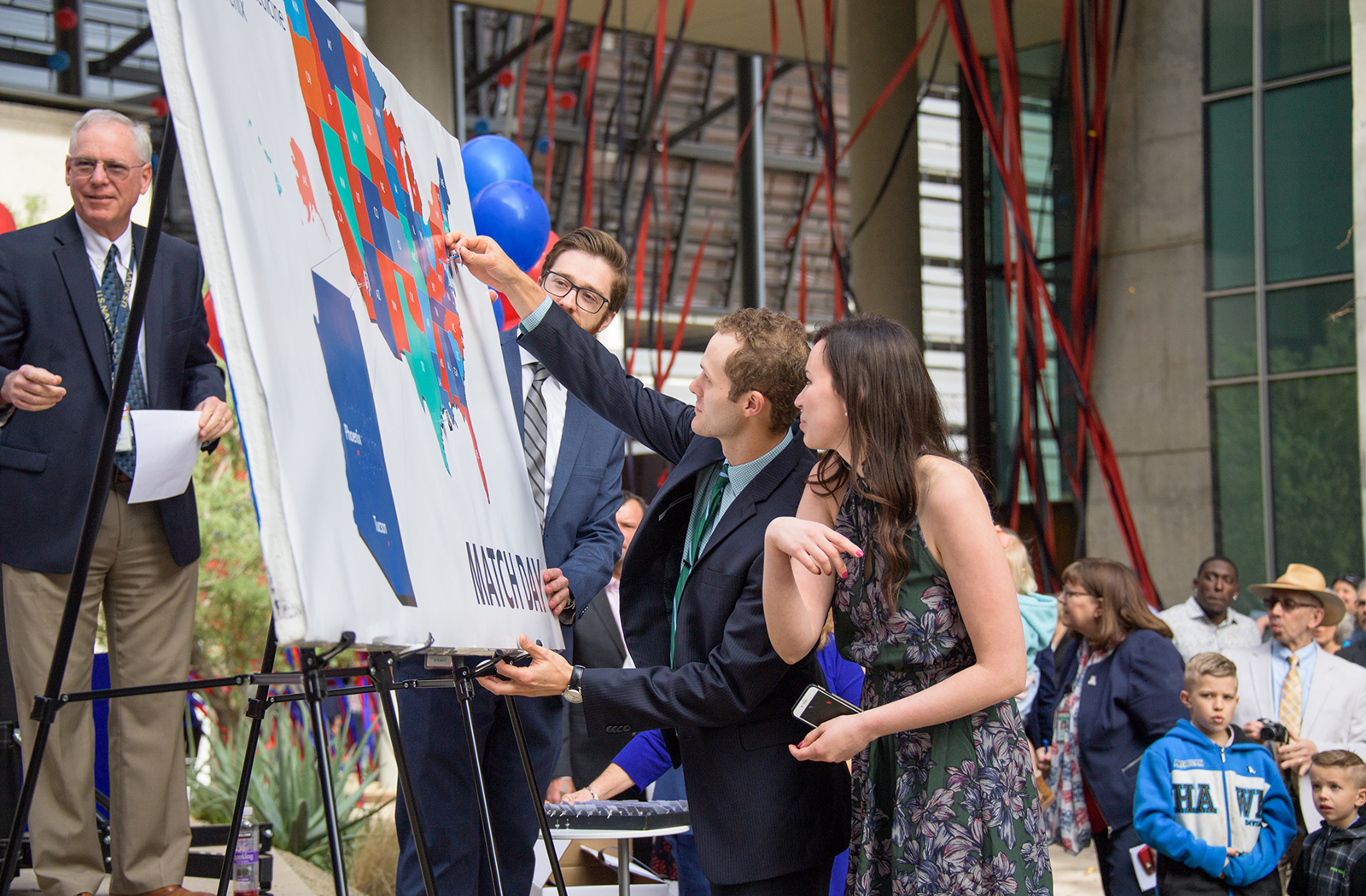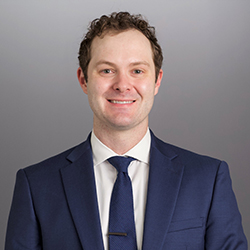
Dr. Andrew Albert Found His Calling with Emergency Medicine

Born and raised in Phoenix, Arizona, Andrew Albert, MD, found his calling in medicine when he worked as a scribe during his time at Arizona State University.
In his junior year of college, Dr. Albert started working in an emergency department as a scribe in Scottsdale. He also met his now-wife, fellow Class of 2018 University of Arizona College of Medicine – Phoenix alumna, Catherine Hermann, MD.
When Dr. Albert enrolled in medical school, he knew he liked working in emergency medicine. However, he kept an open mind and to learned as much as he could about other specialties.

During his time in medical school, Dr. Albert received a scholarship from the Mutual Insurance Company of Arizona (MICA) Medical Foundation Board of Trustees, a scholarship he said helped him financially and made him feel recognized.
“To be recognized for the hard work that the recipients and the rest of my classmates put in was so important,” Dr. Albert said. “Medical school is a large endeavor and many of us come into it with debt from undergrad. Every bit counts.”
Dr. Albert said his time at the U of A College of Medicine – Phoenix gave him an incredible foundation for learning how to be a doctor and take care of patients.
“I’ve spent a fair amount of time at some of the east coast academic medical centers,” Dr. Albert said. “I can honestly say that the clinical training we got and the rotations we did at the College of Medicine – Phoenix was vastly superior to training I’ve seen elsewhere.”
After graduating from medical school, Dr. Albert and Dr. Hermann moved to Pennsylvania for their residencies. Currently, both physicians live and work in New York City.
Emergency medicine is an ever-evolving field; artificial intelligence and computer software are used to interpret X-rays to help expedite decision-making. Dr. Albert said the future of medicine will include technologically savvy solutions to improve patient care.
“Based on looking at massive volumes of data, I think technology has a potential to impact the way we care for patients,” Dr. Albert said. “These are methods that definitely wouldn’t be possible until the last 10 years or so when things like the electronic medical records enabled that sort of structure to be in place.”
Since graduating from medical school, Dr. Albert said he has learned many lessons — including the benefit of making time to care for oneself to be able to provide better patient care.
“Finding things at work that you can do to improve your wellness and maintain that work-life balance was definitely a challenge for me,” Dr. Albert said. “Any sort of thing you do to promote your own wellness, in the long run, is helpful toward your patients.”
Practitioners like Dr. Albert are vital to shifting the needle in patient care. By donating to the University of Arizona’s Fuel Wonder campaign, an investment is made not only to support future physicians, but also future patients in Arizona.
Topics
About the College
Founded in 2007, the University of Arizona College of Medicine – Phoenix inspires and trains exemplary physicians, scientists and leaders to advance its core missions in education, research, clinical care and service to communities across Arizona. The college’s strength lies in our collaborations and partnerships with clinical affiliates, community organizations and industry sponsors. With our primary affiliate, Banner Health, we are recognized as the premier academic medical center in Phoenix. As an anchor institution of the Phoenix Bioscience Core, the college is home to signature research programs in neurosciences, cardiopulmonary diseases, immunology, informatics and metabolism. These focus areas uniquely position us to drive biomedical research and bolster economic development in the region.
As an urban institution with strong roots in rural and tribal health, the college has graduated more than 1,000 physicians and matriculates 130 students each year. Greater than 60% of matriculating students are from Arizona and many continue training at our GME sponsored residency programs, ultimately pursuing local academic and community-based opportunities. While our traditional four-year program continues to thrive, we will launch our recently approved accelerated three-year medical student curriculum with exclusive focus on primary care. This program is designed to further enhance workforce retention needs across Arizona.
The college has embarked on our strategic plan for 2025 to 2030. Learn more.